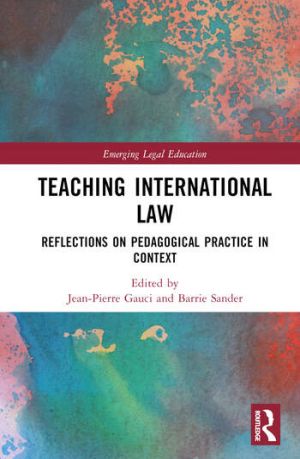
The practice of teaching international law is conducted in a wide range of contexts across the world by a host of different actors – including scholars, practitioners, civil society groups, governments, and international organisations.
This collection brings together a diversity of scholars and practitioners to share their experiences and critically reflect on current practices of teaching international law across different contexts, traditions, and perspectives to develop existing conversations and spark fresh ones concerning teaching practices within the field of international law. Reflecting on the responsibilities of teachers of international law to engage with and confront histories, contemporary crises, and everyday events in their teaching, the collection explores efforts to decentre the teacher and the law in the classroom, opportunities for dialogical and critical approaches to teaching, and the possibilities of co-producing non-conventional pedagogies that question the mainstream underpinnings of international law teaching. Focusing on the tools and techniques used to teach international law to date, the collection examines the teaching of international law in different contexts. Traversing a range of domestic and regional contexts around the world, the book offers insights into both the culture of teaching in particular domestic settings, as well as the structural challenges and obstacles that arise in terms of who, what and how international law is taught in practice.
Offering a unique window into the personal experiences of a diversity of scholars and practitioners from around the world, this collection aims to nurture conversations about the responsibilities, approaches, opportunities, and challenges of teaching international law.